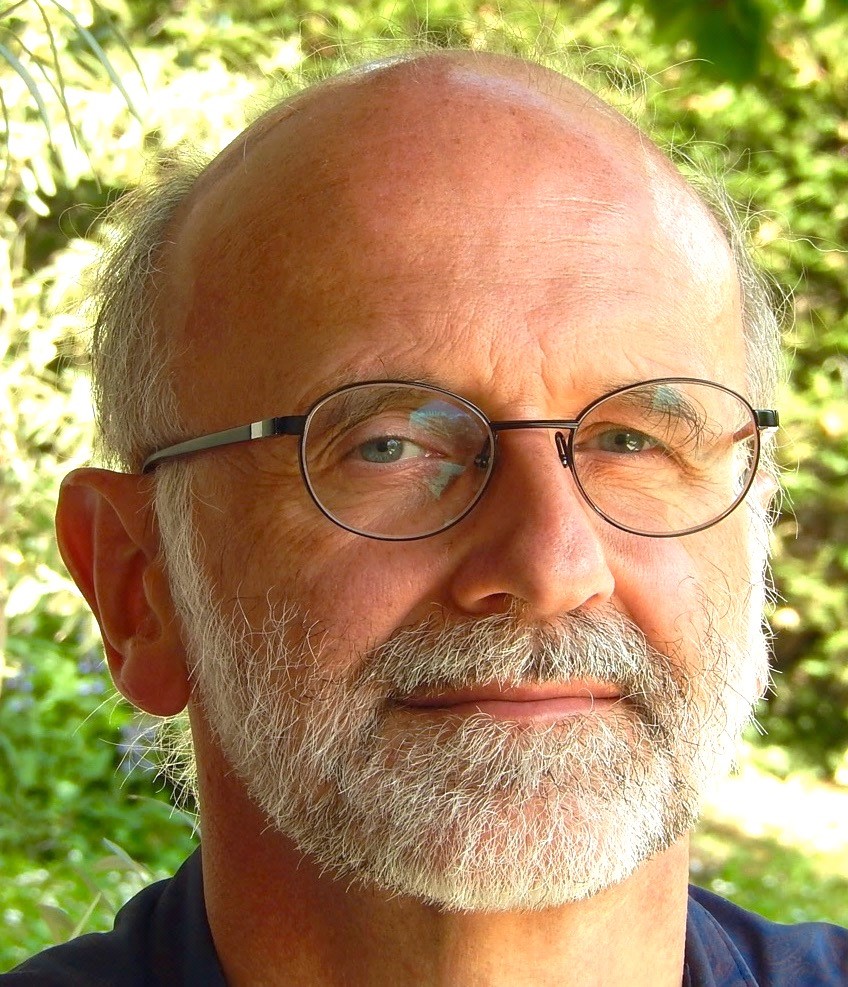- Share
- Share on Facebook
- Share on X
- Share on LinkedIn
Uwe Schlattner, PU, Director of the LBFA
Director of LBFA
Director of SFR Environmental and Systems Biology (BEeSy)
Senior member, nomination at the Institut Universitaire de France
The research of U. Schlattner addresses molecular mechanisms of cellular energy homeostasis, their spatial and temporal integration within the cell (systems aspects), and their role in human health and disease. The prime interest is in energy-, nutrient- and stress-dependent cell signaling via reversible protein phosphorylation and mitochondrial kinases involved in nucleotide exchange and signaling between mitochondria and the cytosol. These include AMP-activated protein kinases, nucleoside diphosphate kinases (NME proteins) and creatine kinases.
After studies in biology at the Universities of Stuttgart-Hohenheim and Freiburg i.Br. (Germany), U. Schlattner obtained a PhD in Biochemistry at the Univ. of Geneva (Switzerland). In 1986, he moved as a research fellow to the ETH Zürich (Swiss Federal Inst. of Technology), where he worked with Prof. Theo Wallimann on creatine kinases, obtained his teaching qualification (habilitation) and became lecturer (1992-1998). In 1995, he was nominated professor at the Univ. Joseph Fourier (UJF), now part of the Univ. Grenoble Alpes, and received a chaire d’excellence (2007-2010). Between 2008 and 2012, he was member of the board of vice-presidents research at UJF, and of the Inserm commission CSS3. Since 2011, he directs the unit LBFA-Inserm U1055 and the Federal Research Structure BEeSy. He also served as elected treasurer and co-chair of the Bioenergetics Subgroup of the Biophysical Society (USA) between 2008 and 2013, and again since 2019. In 2018, he was nominated senior member of the Institut Universitaire de France.
- SATT Linksium Out-of-Lab challenge (2018)
- UGA IDEX crossdisciplinary project (CDP SYMER)- coordinator (2018)
- Industry contracts with Pfizer (2009), Beiersdorf (2013) and Sysmex (2016
- EU H2020 COST Mitoeagle (2016)
- Fondation pour la Recherche Médicale (2014)
- IUF senior member, Region Rhône-Alpes (2010, 2013)
- Fonds d’intervention UJF (2006, 2008, 2012, 2013)
- Chaire d’excellence ANR (2007)
- EU FP6 Marie Curie (2007/2009)
- EU FP6 - member of integrated project EXGENESIS (2005)
>130 peer reviewed publications, >20 books/book chapters
- Pelosse, M., Cottet-Rousselle, C., Bidan, C., Dupont, A., Gupta, K., Berger, I., and Schlattner, U. (2019) Synthetic energy sensor AMPfret deciphers adenylate-dependent AMPK activation mechanism. Nat. Commun. 10, 1-13.
- Chabert, C., Khochbin, S., Rousseaux, S., Furze, R., Smithers, N., Prinjha, R., Schlattner, U., Pison, C., and Dubouchaud, H. (2017) Muscle hypertrophy in hypoxia with inflammation is controlled by bromodomain and extra-terminal domain proteins. Scientific Rep. 7, 12133.
- Kagan, E., Jiang, J., Huang, Z., Tyurina, Y.Y., Desbourdes, C., Cottet-Rousselle, C., Dar, H.H., Verma, M., Tyurin, V.A., Kapralov, A.A., Cheikhi, A., Mao, G., Stolz, D., St. Croix, C.M., Watkins, S., Shen, Z., Li, Y., Greenberg, M.L., Tokarska-Schlattner, M., Boissan, M., Lacombe, M.L., Epand, R.M., Chu, C.T., Mallampalli, R., Bayir, H., and Schlattner, U. (2016) NDPK-D (NM23-H4)-mediated externalization of cardiolipin enables elimination of depolarized mitochondria by mitophagy. Cell Death Diff. 23, 1140-51.
- Pelosse, M., Berger, I., and Schlattner, U. (2015) Genetically encoded fluorescent biosensors based on AMP-activated protein kinase. International publication number WO2015/193466 A1, December 23, 2015.
- Boissan, M., Montagnac, G., Shen, Q., Griparic, L., Guitton, J., Romao, M., Sauvonnet, N., Lagache, T., Lascu, I., Raposo, G.,Desbourdes, C., Schlattner, U., Lacombe, M.L., Polo, S., van der Bliek, A.M., Roux, A., and Chavrier, P. (2014) Nucleoside diphosphate kinases fuel dynamin superfamily proteins with GTP for membrane remodeling. Science 344, 1510-5.
- Ramirez-Ríos, S., Lamarche, F., Cottet-Rousselle, C., Klaus, A., Tuerk, R., Thali, R., Auchli, Y., Brunisholz, R., Neumann, D., Barret, L., Tokarska-Schlattner, M., and Schlattner, U. (2014) Regulation of brain-type creatine kinase by AMP-activated protein kinase: interaction, phosphorylation and ER localization. Biochim. Biophys. Acta (Bioenergetics) 1837, 1271-83.
- Chen, L., Xin, F.J., Wang, J., Hu, J., Zhang, Y.Y., Wan, S., Cao, L.S., Lu, C., Li, P., Yan, S.F., Neumann, D., Schlattner, U., Xia, B., Wang, Z.X., and Wu, J.W. (2013) Conserved regulatory elements in AMPK. Nature 498, E8-10.
- Schlattner, U., Tokarska-Schlattner, M., Ramirez Rios, S., Seffouh, A., Tyuina, Y.Y., Amoscato, A.A., Huang, Z., Jiang, J., Boissan, M., Epand, R.F., Mohammadsanyi, D., Klein-Seetharaman, J., Epand, R.M., Lacombe, M.L., and Kagan, V.E. (2013) Dual function of mitochondrial Nm23-H4 protein in phosphotransfer and intermembrane lipid transfer: a cardiolpin switch. J. Biol. Chem. 288, 111-121.
- Gratia, S., Kay, L., Michelland, S., Sève, M., Schlattner, U., and Tokarska-Schlattner M. (2012) Cardiac phosphoproteome reveals cell signaling events involved in doxorubicin cardiotoxicity. J. Proteomics 75, 4705-16.
- Klaus, A., Polge, C., Zorman, S., Auchli, Y., Brunisholz, R., and Schlattner, U. (2012) A two-dimensional screen for AMPK substrates identifies tumor suppressor fumarate hydratase as a preferential AMPKalpha2 substrate J. Proteomics 75, 3304-13.
- Chen, L., Wang, J., Zhang, Y.Y., Yan, S.F., Neumann, D., Schlattner, U., Wang, Z.X., and Wu, J.W. (2012) AMP-activated protein kinase undergoes nucleotide-dependent conformational changes. Nature Struct. Mol. Biol. 19, 716-8.
- Gratia, S., Kay, L., Potenza, L., Seffouh, A., Novel-Chaté, V., Schnebelen, C., Sestili, P., Schlattner, U.*, and Tokarska-Schlattner M.* (2012) Inhibition of AMPK signaling by doxorubicin: at the crossroads of the cardiac responses to energetic, oxidative and genotoxic stress. Cardiovasc. Res .95, 290-99.
Uwe Schlattner, PU

uwe.schlattner univ-grenoble-alpes.fr (uwe[dot]schlattner[at]univ-grenoble-alpes[dot]fr)
univ-grenoble-alpes.fr (uwe[dot]schlattner[at]univ-grenoble-alpes[dot]fr)
Phone number: +33 (0)4 76 51 46 71
Office 202
- Share
- Share on Facebook
- Share on X
- Share on LinkedIn